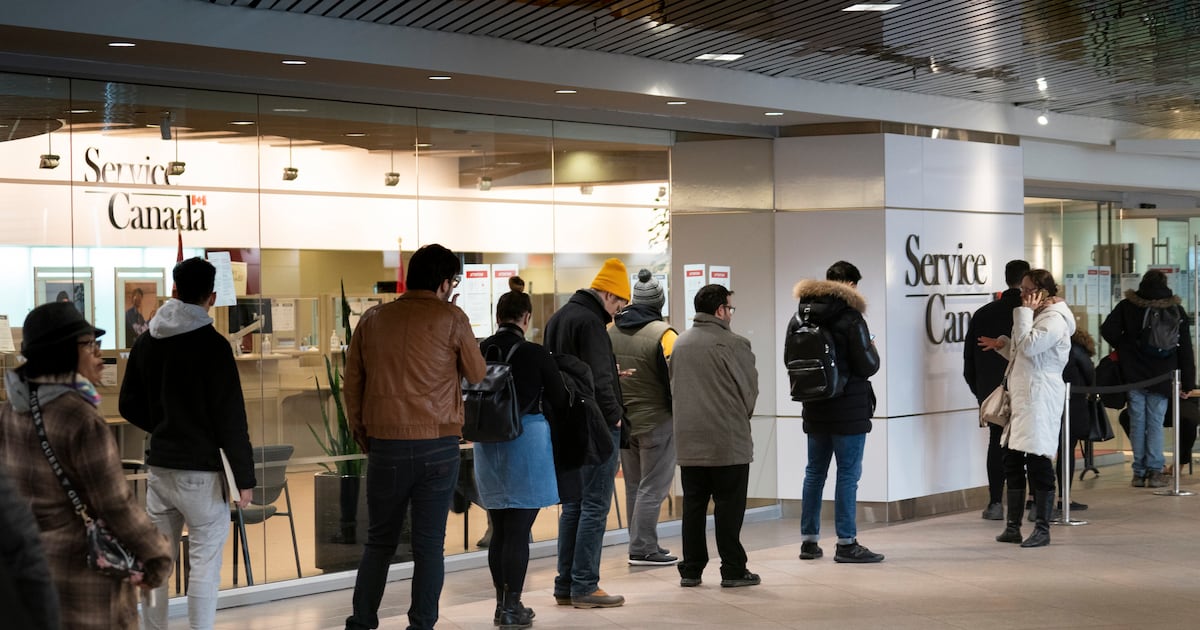Top Stories
Student Unemployment Hits Highest Rate Since 2009, Raising Concerns

The unemployment rate for students seeking summer jobs in Canada has reached its highest level in a non-pandemic year since 2009, standing at a significant 17.4 percent. Economists are expressing concern that this trend might signal the onset of a recession. According to Viet Vu, an economic researcher at Toronto Metropolitan University, “Oftentimes, youth unemployment is a leading indicator to what could be a recession.”
Data released by Statistics Canada in its latest Labour Force Survey reveals that this figure, which pertains to “returning students”—defined as full-time students in March intending to continue their studies in the fall—has increased from 15.8 percent in June 2023. The last time the rate was this high was in June 2009, when it was also recorded at 17.4 percent.
The broader category of youth unemployment, which includes all individuals aged 15 to 24, stood at 14.2 percent in June 2024, a rise of 0.7 percentage points from the previous year and significantly above the pre-pandemic average of 10.8 percent recorded between 2017 and 2019. Jim Stanford, director and economist at the Centre for Future Work, described this summer as “brutal” for students seeking employment. He noted, “The openings are just not there.”
Trade War Impacts Employment Opportunities
Economists attribute part of the rising student unemployment rate to the ongoing trade war between the United States and Canada. Companies are hesitant to hire new staff due to the uncertainty surrounding fluctuating U.S. tariffs on Canadian exports. Stanford stated, “I think the blame for the high student unemployment rate rests solely at Donald Trump’s doorstep.” He emphasized that businesses are wary of expanding their workforce while the economic outlook remains unclear.
The city of Windsor, Ontario, reported the highest unemployment rate across all demographics at 11.2 percent in June, underscoring the trade tariffs’ detrimental effects on local industries. While Stanford is cautious about predicting a recession, he indicated that continued tariff increases could lead to economic downturns. “If [Trump] goes ahead with the 35 percent tariffs, we could have a recession. Not yet, though,” he remarked.
Potential Recovery Signs in Job Market
Despite the rising rates, there are indications that the year-over-year increase in student unemployment is beginning to slow. Brendon Bernard, a senior economist at job search site Indeed, noted that while the unemployment rate for students rose from 11.9 percent in 2023 to 15.8 percent in 2024, it has increased more modestly this year to 17.4 percent. “There’s been some caution that employers have undertaken because the situation could go in multiple directions,” Bernard explained.
As the summer progresses, the outlook for student employment remains uncertain. The high unemployment rates raise questions about the economic health of the country and the potential ramifications for future job seekers. The trends observed this year will be crucial to monitor as Canada navigates its economic landscape in the months ahead.
-

 Politics4 weeks ago
Politics4 weeks agoSecwepemc First Nation Seeks Aboriginal Title Over Kamloops Area
-

 World5 months ago
World5 months agoScientists Unearth Ancient Antarctic Ice to Unlock Climate Secrets
-

 Entertainment5 months ago
Entertainment5 months agoTrump and McCormick to Announce $70 Billion Energy Investments
-

 Science5 months ago
Science5 months agoFour Astronauts Return to Earth After International Space Station Mission
-

 Lifestyle5 months ago
Lifestyle5 months agoTransLink Launches Food Truck Program to Boost Revenue in Vancouver
-

 Technology3 months ago
Technology3 months agoApple Notes Enhances Functionality with Markdown Support in macOS 26
-

 Lifestyle3 months ago
Lifestyle3 months agoManitoba’s Burger Champion Shines Again Amid Dining Innovations
-

 Top Stories2 months ago
Top Stories2 months agoUrgent Update: Fatal Crash on Highway 99 Claims Life of Pitt Meadows Man
-

 Politics4 months ago
Politics4 months agoUkrainian Tennis Star Elina Svitolina Faces Death Threats Online
-

 Sports5 months ago
Sports5 months agoSearch Underway for Missing Hunter Amid Hokkaido Bear Emergency
-

 Politics5 months ago
Politics5 months agoCarney Engages First Nations Leaders at Development Law Summit
-

 Technology5 months ago
Technology5 months agoFrosthaven Launches Early Access on July 31, 2025




















